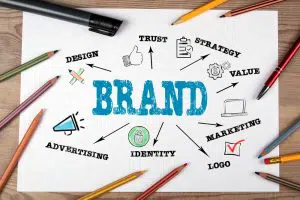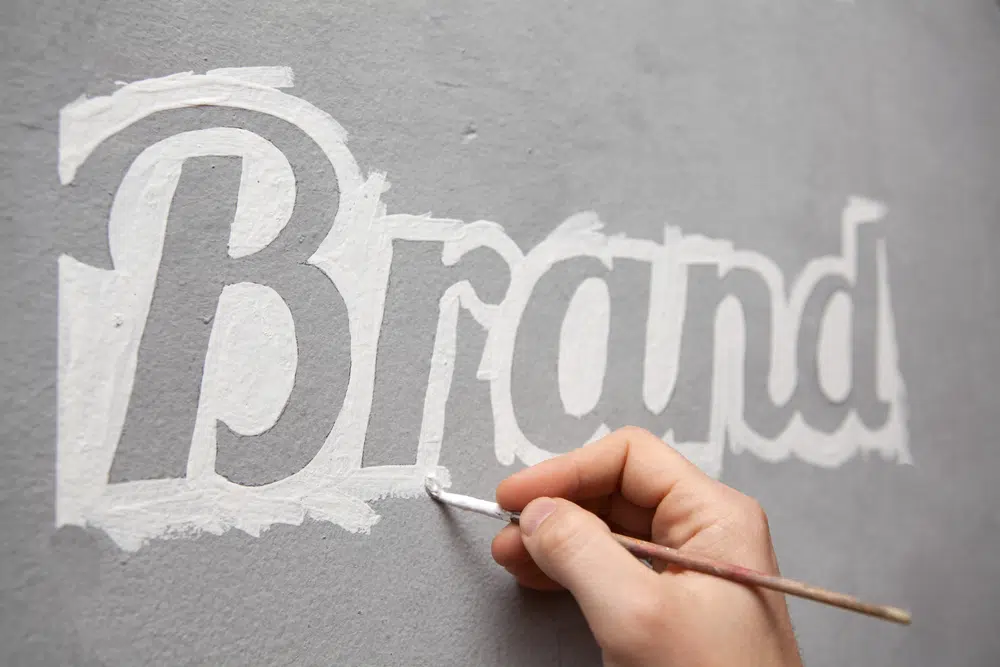
The two are ultimately intertwined with one another, and therefore share a series of similarities. However, it is the key differences that you should seek to improve your understanding of, so that you can go on to connect the dots and create a stronger company in the long run.
What are the differences between “brand” and “business” is that the latter, a business is usually a company that produces your products or offers your services.
Where as your “brand” is the image or identity that your business projects, even founders have their own brand, its just the way that consumers perceive your business.
Difference between business and a brand name?
While most people file all their efforts into building the business first, this typically means expanding the scope of offering additional goods or services to your customers.
Brand building usually comes second. However, building your brand typically means keeping your scope focused on a single idea that will come to embody your business.
The two aren’t quite exclusive, it is possible to have a profitable business with a strong, readily identifiable brand, but this will not just happen it takes years of work. brand builders will take concerted efforts to build your brand alongside your business. As the founder you need to be willing to make sacrifices and concessions when necessary to balance the two out.
The main key difference between a brand vs business is rather simple to understand. A business is the organisation that produces products and offers services. Meanwhile, a brand is the image or identity that any business projects; the way that consumers perceive a business.
There is indeed much more to both brand and business than first meets the eye. While knowing the key difference between the two is fundamental to further success within your chosen sector, it isn’t the sole be all and end all. Knowing how these two phrases fit into many different business areas is required if you are hopeful of leading your firm to a highly prosperous future.
Brand Image
In order to stand out from the crowded marketplace of competitors, it is essential that you have a strong brand image. In simple terms, brand image is the consumer perception of your business, based on their own interactions with it. This means that it can develop over a period of time into something completely different; it doesn’t always involve customers buying your products and services. Since the customer perception of your brand can change, it is imperative that you are constantly looking to keep your brand image top notch.
Business owners spend an awful lot of time moulding a brand personality and voice to help with their company’s positioning in the marketplace. All of these contribute to the way a customer interacts with and perceives your brand, which culminates in brand image.
Corporate Image
Businesses incorporate a wide variety of elements of branding into their corporate image. A corporate image focuses on organisation characteristics like creativity, trustworthiness, beneficence, client engagement and quality driven levels. Those are the characteristics that would assemble certainty among your clients and prospects, persuading them that your organisation is a solid and trusted provider.
Though corporate image is less significant in customer markets, organisations who need to separate themselves underscore their corporate characteristics completely and utilise the importance of them.
Market Sectors
Organisations target singular products and services at consumers in specific market sectors. An association like Johnson and Johnson works in a wide series of areas, for example, medical care, solution items, hair care and childcare items. Inside every one of the areas, it has singular brands focused on explicit sub-sectors. They can pursue a more extensive base of clients for the organisation overall in the event that they fragment by brand to target various necessities and client portions.
Knowing exactly who your ideal customer is and painting a mental picture of them will give you a good starting point when trying to connect with your brand’s target audience. Think about different segments of your target market; what age bracket will your ideal customer be in? Where might they be based, local to the business or further away on a global scale? Are you aiming for a specific gender or is that not a focus of your business? These questions, along with many more are the sorts of things you need to ask yourself and provide the answers to.
Your brand is what makes you unique in the world of business
A brand is a recognisable image, mark, logo, name, word, or potentially sentence that organisations use to differentiate their selves from others. A mix of at least one of those components can be used to make a brand’s character stand out amongst the rest. Lawful protection given to a brand name is known as a trademark.
Your brand is the most unique and defining feature of your overall company, meaning it is inherently important that you build a strong and easily identifiable one. People should be aware of your business as a direct result of the brand you have developed over time.
Knowing the next step to take is essential
You have to do what’s right for your business venture when you are laying further groundwork for the future growth of your firm. Keep in mind that everything you do should be directly related to the betterment of your business; you are not building a personal brand. Perhaps becoming more active on social media is what your company currently needs, or maybe the digital marketing strategy you currently deploy needs looking into to ensure it is of a high quality.
The chances are, you as the business owner, have the power to implement these changes yourself. You won’t necessarily need to contact a branding agency for advice, instead you can perform a self-analysis of your company. If you are still struggling to get a grip of everything, use this as an example: when you think of Coca Cola, do you think of the product or everything that goes with it, such as the logo, the colour scheme it uses in its imagery, etc? If your answer is the latter, then it means you think of the brand. This shows that a strong brand image can make you instantly recognisable to the consumer.
Which are you building?
Building your business regularly implies growing your scope and offering extra goods or services to your clients. Nonetheless, building your image ordinarily implies keeping your scope zeroed in on a solitary thought that will eventually encapsulate your business.
The two aren’t exactly fundamentally unrelated; it is feasible to have a beneficial business with a solid, promptly recognisable brand, however this doesn’t occur unintentionally. It requires a purposeful exertion to assemble your image close by your business, and you should make penances and concessions when necessary to adjust the two.
Sometimes focusing on the cheapest option is best
When thinking about which aspect of your company you should try and flesh out first, you need to consider the fact that small businesses in particular can quickly run into financial troubles if they aren’t careful. This even makes it difficult for them to survive in many instances. One useful way of saving money and trying to get through the trying period of the Coronavirus pandemic is to cut out the costs you don’t necessarily need. Marketing isn’t essential while your business can’t function properly, so switch out your current plan for word-of-mouth messaging and focus on the health of your company.
The future will only be important to your independent business if you manage to make it there, so don’t go spending your last penny on something that isn’t essential to your business at this current time. Remember that when the pandemic finally comes to an end, you’ll be able to revert back to your previous marketing strategy and start making some real cash once again.
Should I build my brand or my business first?
You must build a business before you develop a brand; it is the only logical way to proceed. Building your business will yield prompt outcomes, yet your success will be short lived without a brand to hang it on. Building your image may procure you the dedication and veneration of your clients, yet they will be rare in the event that you let your business endure.
With this in mind, the correct way to approach this situation is to build up your business in right now, while keeping an eye out for your perceived brand image in the long haul. It’s more difficult than one might expect, yet it’s certainly feasible when approached in the correct manner.
Could a start-up loan be your key to success?
The number of new start-ups in the UK is now at record levels. Britain, meanwhile, is rated as one of the best places to start a new business, despite all the troubles of Brexit, according to a survey from Weebly. This new breed of entrepreneurs come in all shapes and sizes. While millennials make up the largest group of these new entrepreneurs. A growing number of baby boomers are ditching retirement plans to start a second career. 45% of those surveyed were women, with many entrepreneurs finding ways to turn their hobbies into a living.
However, the biggest thing standing in the way is money and where to find it. To get started you’ll need enough money to buy all the equipment you need, employ people and keep the business running until it starts generating revenue. This can be the biggest challenge. Most start-ups will fail within the first few years, so from a bank’s perspective new business lending appears high risk which is why many of them will be wary about offering start-up and new business start-up loans for small Businesses.
Lee Jones is a seasoned Business Finance Specialist with over two decades of invaluable experience in the financial sector. With a keen eye for market trends and a passion for helping businesses thrive, Lee has become a trusted advisor to countless organizations seeking to navigate the complexities of finance.


